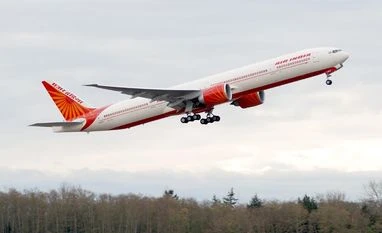The Competition Commission of India (CCI) has issued a show-cause notice to Air India, asking why its proposed merger with Vistara should not be probed over concerns about competition in the aviation sector, airline sources said on Tuesday.
The CCI has given Air India 30 days to respond, the sources said. The airline, however, did not respond to queries sent by Business Standard on the matter.
Tata Sons and Singapore Airlines (SIA) had filed a merger application with the antitrust body in April, stating that the amalgamation of Vistara with Air India would not lead to any change in the competitive landscape or cause any appreciable adverse effect on competition in India. They had expressed hope to conclude the merger by March 2024.
Air India is wholly owned by Tata Sons, while Vistara is a 51:49 joint venture between Tata Sons and SIA.
“The CCI issues a show-cause notice in limited cases – in less than 5 per cent of the total notified deals to date. If the CCI is not convinced with the response of the parties or the remedies offered by them, the matter will go to Phase II -- a detailed investigation stage, where the CCI will seek comments/objections from stakeholders,” Vaibhav Choukse, partner & head of competition practice, JSA, told Business Standard.
In November last year, Tata Sons and SIA had announced the merger of the two airlines. As a part of the deal, SIA would invest Rs. 2,059 crore in the expanded share capital of Air India for a 25.1 per cent stake. Tata Sons would have the remaining 74.9 per cent stake in the combined entity.
On India’s top five busiest routes, Air India Group, which comprises Air India, Vistara, AirAsia India, and Air India Express, holds 38-53 per cent share in terms of scheduled flights, according to aviation analytics firm Cirium.
More From This Section
The Tata group is consolidating its aviation business and merging the four airlines into two. While Air India is being merged with Vistara to create a single full-service carrier, AirAsia India is being merged into Air India Express to create a single low-cost airline under Air India. AirAsia India and Air India Express are completely owned by Tata Sons and these two carriers’ merger got approved by the CCI in June last year.
Choukse said that in airline mergers, the CCI would try to ensure continued competition on all routes affected by the merger. To examine airline mergers, the CCI uses an internationally accepted ‘point of origin/point of destination’ (O&D) pair approach.
“According to this approach, every combination of a point of origin and a point of destination should be considered to be a separate market from the customer’s viewpoint. For example, the Delhi-Jabalpur flight route would constitute a separate market, and the CCI would see whether the combined entity would face enough competition after the merger. Hence, market shares (on specific routes) will play an important role in this assessment,” he added.
Kunal Mehra, partner, DSK Legal, said the present show-cause notice was likely to have asked the merging parties to explain why a detailed investigation (Phase-II investigation) should not be conducted into the proposed merger. “It is pertinent to note that out of over 1,000 mergers & acquisitions that have been notified to the CCI till date, the CCI has conducted a Phase-II investigation in a rather miniscule percentage of such notifications, being approximately 2-4 per cent,” he explained.
A detailed investigation would result in a lengthier process involving consultation with various stakeholders including competitors, he mentioned. “The CCI has not blocked any deal so far. Therefore, if deemed necessary, the CCI can also direct a conditional approval to the proposed merger. Such conditions would typically include structural remedies such as divestiture of assets or behavioural remedies such as price commitments, etc, to ensure fair competition in the aviation sector. The remedies, if any, would aim to address any competitive harm which the CCI thinks is likely to be caused due to the proposed merger,” Mehra added.
In terms of overall domestic passenger numbers, Air India Group had 25.1 per cent market share in the January-March period of 2023, according to the Directorate General of Civil Aviation. IndiGo, India’s largest airline, had 55.7 per cent market share in the same period.
)